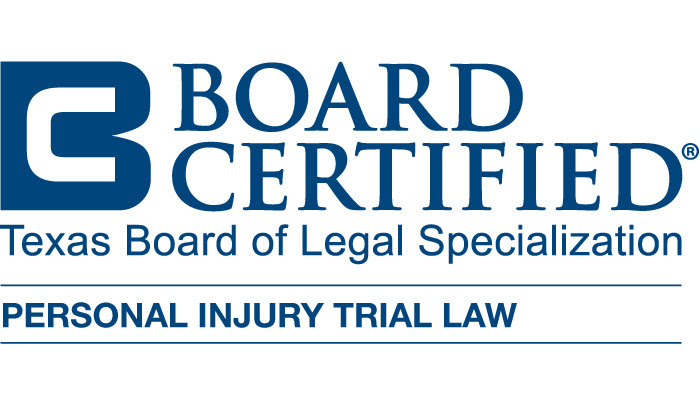Car accidents in Texas can have profound consequences, often resulting in injuries, emotional distress, and significant financial burdens. When it comes to seeking compensation for the damages incurred in a car accident, understanding the factors that can influence the value of your settlement is crucial. Texas, like other states, has its own set of laws and regulations that govern car accident claims. These laws, along with various other elements, play a pivotal role in determining the final settlement amount. This discussion delves into the key factors that can significantly impact the value of your Texas car accident settlement.


Severity of Injuries and Medical Expenses
The extent of injuries sustained in a car accident is perhaps one of the most critical factors influencing the value of a settlement. In Texas, the severity of injuries is often directly correlated with the compensation amount. Serious injuries such as fractures, spinal cord injuries, traumatic brain injuries, or permanent disabilities typically lead to higher settlements due to the substantial medical expenses involved. The cost of surgeries, hospital stays, rehabilitation, and ongoing medical care can be astronomical, and the settlement must account for these expenses. Moreover, future medical expenses, especially in cases involving long-term or permanent injuries, are also considered when calculating the settlement. The more severe and long-lasting the injuries, the higher the compensation is likely to be.
Impact on Earning Capacity and Lost Wages
Another crucial factor in determining the value of your Texas car accident settlement is the impact of the accident on your ability to work and earn a living. If the injuries sustained in the accident have resulted in temporary or permanent disability, preventing you from working or reducing your ability to earn at the same level as before, this loss of income will be factored into your settlement. The calculation for lost wages considers not only the time missed from work due to the accident but also any potential future earnings lost due to a diminished earning capacity. In cases where the victim is unable to return to their previous line of work or is forced to take a lower-paying job due to their injuries, the settlement will typically include compensation for the difference in income over their remaining working years.
My focus is to give a voice to families who have suffered a wrongful death or a serious injury to a family member caused by an 18-Wheeler, commercial truck, or a drunk driver. Contact us today, we can help you.Helping Injury Victims for Over 25 Years
Property Damage and Vehicle Repair Costs
The damage to your vehicle and other personal property as a result of the accident is also a significant component in calculating your settlement. The cost to repair or replace your vehicle, as well as any other damaged property, will be included in the settlement amount. In cases where the vehicle is totaled, the settlement may cover the fair market value of the vehicle at the time of the accident. Additionally, if you had to rent a car or incur other transportation costs while your vehicle was being repaired or replaced, these expenses could also be included in the settlement. The extent of property damage, therefore, plays a vital role in determining the overall compensation.
Emotional Distress Pain and Suffering
In addition to the tangible costs of medical expenses, lost wages, and property damage, the emotional and psychological impact of a car accident can also influence the value of your settlement. Pain and suffering refer to the physical and emotional distress caused by the accident and its aftermath. This includes not only the physical pain from injuries but also the mental anguish, anxiety, depression, and loss of enjoyment of life that may result from the accident. Calculating pain and suffering is more subjective than calculating medical expenses or lost wages, but it is an essential component of the settlement. In Texas, there is no specific formula for calculating pain and suffering, but factors such as the severity of the injuries, the length of recovery, and the impact on the victim’s daily life are considered.
Degree of Fault and Comparative Negligence
Texas follows the legal doctrine of comparative negligence, which can significantly affect the value of your car accident settlement. Under comparative negligence, the compensation you receive may be reduced by the percentage of fault assigned to you for the accident. For example, if it is determined that you were 20 percent at fault for the accident, your settlement would be reduced by 20 percent. If you are found to be more than 50 percent at fault, you may not be eligible to receive any compensation at all. Therefore, the degree of fault assigned to each party involved in the accident is a critical factor in determining the final settlement amount. It is essential to have strong evidence and legal representation to minimize your percentage of fault and maximize your compensation.
Insurance Policy Limits
The insurance policy limits of both the at-fault driver and your own insurance policy can also play a significant role in determining the value of your settlement. In Texas, drivers are required to carry minimum liability insurance, which covers bodily injury and property damage caused to others in an accident. However, if the damages exceed the at-fault driver’s policy limits, recovering the full amount of your losses can become more challenging. In such cases, you may need to turn to your own insurance policy, such as uninsured/underinsured motorist coverage, to cover the remaining costs. The availability of insurance coverage and the policy limits will directly impact the settlement amount.
Pre-existing Conditions and Medical History
Your pre-existing medical conditions and overall medical history can influence the value of your car accident settlement. Insurance companies often scrutinize a victim’s medical history to determine whether the injuries claimed are entirely attributable to the accident or if they were exacerbated by pre-existing conditions. If you had a pre-existing condition that was aggravated by the accident, the settlement may be adjusted accordingly. However, it is essential to note that under Texas law, you are still entitled to compensation even if the accident worsened a pre-existing condition. The challenge lies in proving the extent to which the accident contributed to the injury, which can impact the final settlement amount.
Related Videos
Choosing a Personal Injury Attorney
Types of Compensation in a Truck Accident Claim
Quality of Legal Representation
The quality of legal representation you receive can have a profound impact on the outcome of your car accident settlement. An experienced attorney with a deep understanding of Texas car accident laws and a track record of successful settlements can negotiate more effectively with insurance companies and ensure that all relevant factors are considered in calculating your settlement. Legal representation can also help in gathering evidence, such as medical records, witness statements, and accident reports, to build a strong case that supports your claim for maximum compensation. Without proper legal representation, you may risk settling for an amount that is far less than what you are entitled to.
Timing of the Settlement
The timing of your settlement can also influence its value. In some cases, settling too quickly can result in receiving less compensation than you deserve, especially if the full extent of your injuries and future medical needs are not yet known. On the other hand, dragging out the settlement process can also have drawbacks, such as increased legal costs and prolonged financial stress. It is crucial to strike a balance and work with your attorney to determine the right time to settle, ensuring that all aspects of your damages are accounted for and that you receive fair compensation.
Impact of Economic Conditions
The broader economic conditions at the time of your settlement can also influence its value. Factors such as inflation, the cost of medical care, and the overall economic climate can affect the amount of compensation awarded. In a strong economy with rising medical costs, settlements may be higher to account for these increased expenses. Conversely, during economic downturns, insurance companies may be more inclined to offer lower settlements, anticipating that victims may be more willing to accept a quicker payout due to financial pressures. Understanding the economic context in which your settlement is being negotiated can help you and your attorney navigate these challenges and strive for the best possible outcome.
The Role of Evidence and Documentation
The strength of the evidence and documentation supporting your claim is another crucial factor that can impact the value of your settlement. Detailed medical records, receipts for medical expenses, repair bills, photographs of the accident scene, and witness statements all contribute to building a solid case. The more comprehensive and well-organized your evidence is, the better your chances of securing a higher settlement. Additionally, documentation of any non-economic damages, such as pain and suffering or emotional distress, is essential in supporting these claims and ensuring they are accurately reflected in the settlement amount. Properly documenting your injuries and losses from the outset of your case can make a significant difference in the final outcome.
Negotiation Strategies
The negotiation strategies employed during the settlement process can influence the final value. Skilled negotiation is essential in maximizing the compensation you receive. Insurance companies often attempt to minimize payouts by offering low initial settlements. Having an attorney who can effectively counter these offers, present compelling arguments, and leverage the evidence to support your claim is vital in achieving a fair settlement. The willingness to go to trial if necessary can also be a powerful negotiating tool, as it signals to the insurance company that you are serious about pursuing full compensation for your damages.
The factors that influence the value of a Texas car accident settlement are multifaceted and complex. Understanding these elements and how they interact is crucial in securing the compensation you deserve after an accident. Every case is unique, and the specific circumstances surrounding your accident will ultimately determine the outcome of your settlement. If you or a loved one has been involved in a car accident in Texas, it is essential to seek legal guidance from experienced attorneys who can navigate the complexities of the claims process and fight for your rights.
At Willumsen Law Firm, P.C., we are dedicated to providing you with the support and representation you need to achieve the best possible outcome for your case. Contact us today to discuss your situation and learn more about how we can help you secure the compensation you deserve.



